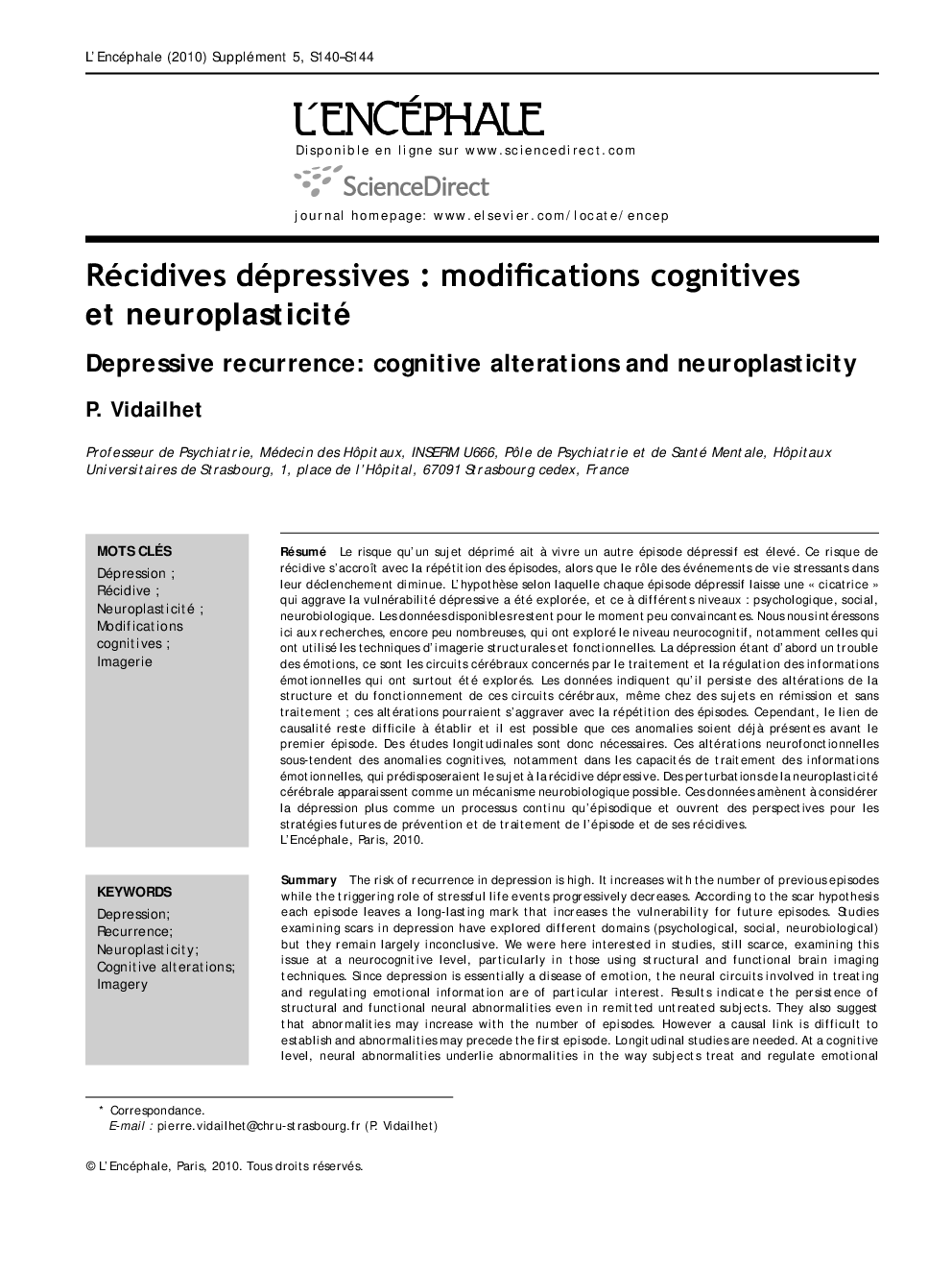| Article ID | Journal | Published Year | Pages | File Type |
|---|---|---|---|---|
| 4182738 | L'Encéphale | 2010 | 5 Pages |
Abstract
The risk of recurrence in depression is high. It increases with the number of previous episodes while the triggering role of stressful life events progressively decreases. According to the scar hypothesis each episode leaves a long-lasting mark that increases the vulnerability for future episodes. Studies examining scars in depression have explored different domains (psychological, social, neurobiological) but they remain largely inconclusive. We were here interested in studies, still scarce, examining this issue at a neurocognitive level, particularly in those using structural and functional brain imaging techniques. Since depression is essentially a disease of emotion, the neural circuits involved in treating and regulating emotional information are of particular interest. Results indicate the persistence of structural and functional neural abnormalities even in remitted untreated subjects. They also suggest that abnormalities may increase with the number of episodes. However a causal link is difficult to establish and abnormalities may precede the first episode. Longitudinal studies are needed. At a cognitive level, neural abnormalities underlie abnormalities in the way subjects treat and regulate emotional information that may increase their vulnerability to develop new episodes. At a neurobiological level, disturbances in neuroplasticity appear as a possible mechanism. Depression should be considered as a continuous rather than an episodic process, and present data offer interesting perspectives concerning the prevention and the treatment of depressive episodes and their recurrence.
Keywords
Related Topics
Health Sciences
Medicine and Dentistry
Psychiatry and Mental Health
Authors
P. Vidailhet,
